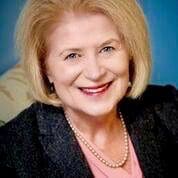Search Posts
Recent Posts
- GriefSPEAK: Running from memories, numbing the pain – Mari Nardolillo Dias January 24, 2025
- Business Beat: Mick Lamond, now CEO of Newport Restaurant Group January 24, 2025
- Rhode Island Weather for January 24, 2025 – Jack Donnelly January 24, 2025
- Michael Soscia, Bishop Hendricken Hockey Coach continues legacy of excellence – John Cardullo January 24, 2025
- Transparency a pressing issue for everyone – Ethan Shorey, Rhode Island Press Association January 24, 2025
Categories
Subscribe!
Thanks for subscribing! Please check your email for further instructions.

Going Through the Motions Being of Normal
By Mary T. O’Sullivan, MSOL
“When there’s nothing better to do, we go through the motions” – Trudi Pacter, Yellow Bird (2002)
We’ve self-isolated for a number of weeks now. Everyone has learned the new meaning of “pivot” and “shift”. Kids, dogs and cooking at home have taken over our lives. And yet, there’s more! We’re told to be productive, learn something new, read more books, get more sleep, exercise, eat healthy, be upbeat and optimistic, and use TV for religious services. Then there’s the realistic and ever-present worry over how long we’ll have money coming in, and the whereabouts of our unemployment checks. Countless “experts” impart advice about stress relief and working from home. Some of us have become paralyzed with confusion and fear. We forgot what we were supposed to do. We somehow feel empty. We know something is missing. Zoom, Skype, WebEx meetings leave us drained. And all the happy talk doesn’t fill the void.
We could just throw up our hands and declare “overwhelm”. Stop the world, I want to get off! And it’s hard to admit when overwhelm becomes our current state. The TV news is bewildering, medical advice is a mystery. We wear masks and gloves and take our temperatures. We fret about falling victim to the sickness. It’s complicated. We wish things would go back to “normal” again, and we know for now, normal is a long way off. We are like those pups in Pavlov’s famous “classical conditioning” experiment. The Nobel Prize winning behavioral psychologist trained dogs to anticipate the reward of food when presented with a circle. When presented with an oval, however, the dogs were penalized. Then, Pavlov began to slowly change the shape of the circle until it became an oval. The less the two shapes looked alike, the more the dogs became confused and anxious, and the more their behavior become more erratic and unpredictable. This phenomenon is called “cognitive dissonance.”
In our “new normal” humans are a lot like our furry friends in Pavlov’s experiment. We’re not sure what is coming next, and our collective behavior is beginning to show it. Anti-quarantine protesters want it to all end now. Others are cocooned in their homes with no plans to venture out. This confusion reflects our search for the elusive “normal.” There is a psychological theory that engaging in some familiar activity may help heal a state of confusion and overwhelm. In some cases, people experience such emptiness that it’s hard to imagine doing anything, much less anything “normal”. To get people moving in the right direction, the psychologists found that doing something is better than doing nothing. Just do it is “going through the motions of being normal”, and the technique is now widely used in cognitive therapy circles all over the world.
How does it work? First, people take an honest, unemotional assessment of their situation. This means allowing themselves to turn off the noise, step away from the chaos, settle down the mind and break away from anything urgent. Once awareness sets in, we are able to make decisions about what’s most important and put things in perspective. We come to terms with what we can control, what’s realistic for us, and what’s sustainable. Setting priorities is the secret. We may not feel up to doing what we need to do, but we do it anyway, because in truth, no one else is going to do it for us. The dishes won’t do themselves, our pets still need our attention, and the kids need clean clothes. If we re-assemble the fragments of our daily reality, slowly, we understand what our “normal” looks like. Some days, we’re just not up to it. Other days, we welcome the diversion. We have a choice. And even if we are only “going through the motions”, it’s the normalcy that we can cope with. It relieves the “cognitive dissonance”. It is our “new normal”, even if we are only “going through the motions”.
“Even going through the motions is a way of establishing a new relationship with our inner life that is care and tender, versus one that is judging, distancing, or ignoring. This is the beginning of being capable of intimacy with others.” – Tara Brach
Connect with Mary
www.encoreexecutivecoaching.com
401-742-1965
RHODE ISLAND’S SMALL BUSINESS GIFT IT FORWARD PROGRAM
Donate to Rhode Island’s “Gift It Forward” Program to help support small businesses during the quarantine.

Mary T. O’Sullivan
Mary O’Sullivan has over 30 years of experience in the aerospace and defense industry. In each of her roles she acted as a change agent, moving teams and individuals from status quo to higher levels of performance, through offering solutions focused on changing behaviors and fostering growth.
Mary has a Master of Science in Organizational Leadership from Quinnipiac University. In addition, she is also an International Coaching Federation Professional Certified Coach, a Society of Human Resource Management Senior Certified Professional and has a Graduate Certificate in Executive and Professional Coaching, from the University of Texas at Dallas.
In her leadership and executive coaching, she focuses on improving the executive behaviors that slow down performance and lead to growth, such as soft skills, communication, micro-bias awareness, etc. She has successfully helped other professionals, such as attorneys, surgeons, pharmacists, and university professors, make career decisions to lead to success in their chosen careers. In addition, small business owners have sought Mary’s services to bring their companies into greater alignment, working on their culture, vision, mission, values and goals as well as organizational structure. Mary’s executive coaching has been mainly with large organizations among them: Toray Plastics America, Hasbro, Raytheon Company, Lockheed Martin, CVS Healthcare, Sensata Technologies, Citizen’s Bank, Ameriprise, BD Medical Devices, Naval Undersea Warfare Center, (Newport, R.I.), General Dynamics, University of Rhode Island, Community College of Rhode Island, etc.
Mary has facilitated numerous workshops on various topics in leadership such as, emotional intelligence, appreciative inquiry, effective communication, leading in adversity, etc. She has also written extensively on similar topics.
Mary is also a certified Six Sigma Specialist, Contract Specialist, IPT Leader and holds a Certificate in Essentials of Human Resource Management from the Society of Human Resources Development. Mary is also an ICF certified Appreciative Inquiry Practitioner, and a Certified Emotional Intelligence assessor and practitioner.
In addition, Mary holds a permanent teaching certificate in the State of New York for secondary education with Advanced Studies in Education from Montclair University, State University of New York at Oswego and Syracuse University. She is also a member Beta Gamma Sigma and the International Honor Society.
